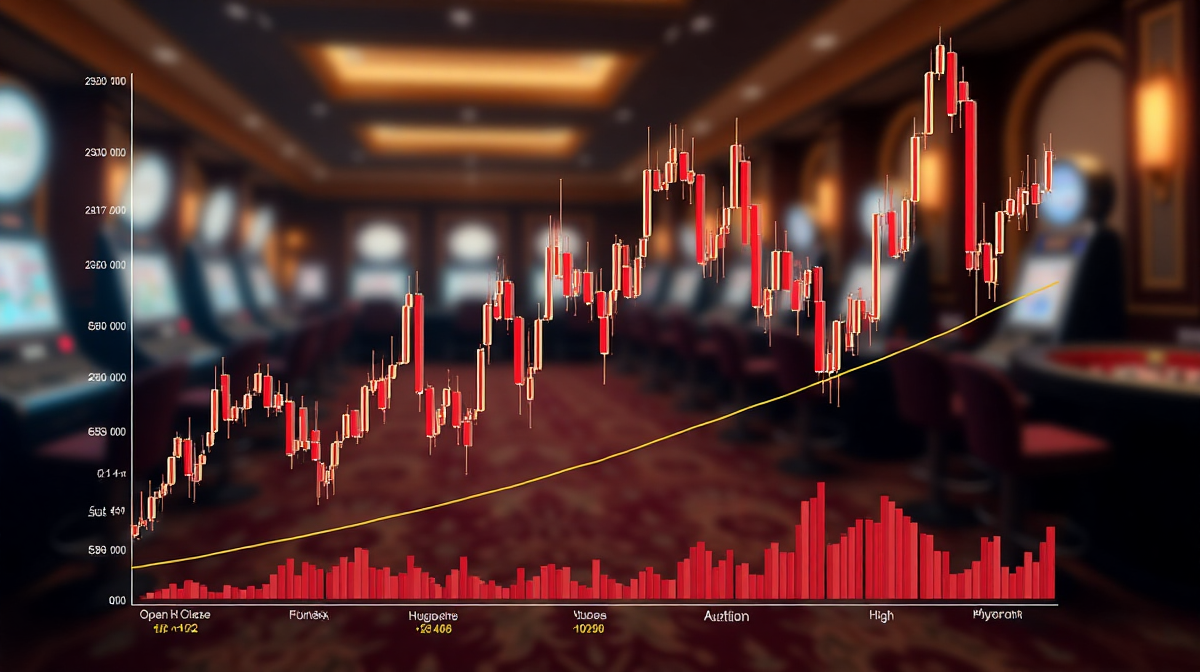What is a Bet Odd & How Does It Work?
Introduction: Understanding Betting Odds
What are Betting Odds? – A Beginner's Explanation
Betting odds represent the probability of an event happening, as perceived by a bookmaker. They also determine the potential payout if your bet is successful. Essentially, a bet odd is a numerical expression of how likely an outcome is, and how much you stand to win relative to your stake. Understanding these odds is the first step to becoming a successful bettor. They aren't just random numbers; they’re a carefully calculated reflection of various factors.
Why are Betting Odds Important?
Odds are crucial for two primary reasons: payout calculation and probability assessment. Higher odds signify a lower probability of an event occurring, but a potentially greater return on investment. Conversely, lower odds suggest a higher probability, but a smaller payout. Knowing how to interpret these relationships allows you to make informed decisions. Analyzing premier league today matchups requires a solid understanding of the odds on offer.
Brief History of Betting Odds
The concept of betting dates back centuries, but formalized odds systems are relatively modern. Initially, odds were informally agreed upon between individuals. The standardization of odds began in the 18th century with the rise of betting shops in England. Over time, different formats evolved – American, Decimal, and Fractional – each catering to different preferences and geographical regions.
Types of Betting Odds
American Odds - Explained with Examples
American odds are displayed with a plus (+) or minus (-) sign. A minus sign indicates the amount you need to bet to win 100 bet. For example, -150 means you need to bet 100, and +200 means you'll win 100 bet.
Decimal Odds – Explained with Examples & Practical Use
Decimal odds represent the total payout for every 2 back for every 1. They are easy to calculate: simply multiply your stake by the decimal odd to determine your total payout. Many analyze premier league results looking at decimal odds to spot trends.
Fractional Odds – Explained with Examples & How to Calculate Potential Payout
Fractional odds represent the profit you’ll make relative to your stake. For example, 5/1 means you’ll win 1 you bet, in addition to getting your ⚠formula incomplete
Comparing Different Odds Formats – Conversion Charts & Tools
Converting between American, Decimal, and Fractional odds is essential for comparing offers from different bookmakers. Numerous online conversion tools and charts are available to simplify this process. Understanding the conversion allows you to find the best value, regardless of the format presented.
Implied Probability – How to calculate the chances of an event happening based on odds.
Implied probability is the percentage chance of an event occurring, as derived from the betting odds. For decimal odds, the formula is 1 / Odds x 100. For example, odds of 2.00 imply a 50% probability. This is a valuable tool for assessing whether the odds offered reflect the true likelihood of an event.
How Betting Odds Work: The Mechanics Behind the Numbers
How Bookmakers Set Odds - Factors Influencing Odds
Bookmakers don't just pull numbers out of thin air. They employ sophisticated algorithms and teams of analysts to set odds. Factors considered include team strength, player injuries, head-to-head records, home advantage, recent form, and even weather conditions. The goal is to accurately reflect the probability of each outcome.
The Role of the Overround – How Bookmakers Make a Profit
Bookmakers need to make a profit, and they do so by incorporating an overround (also known as vigorish or juice) into the odds. This means the implied probabilities of all possible outcomes add up to more than 100%. The difference represents the bookmaker's margin.
Line Movement: Why Odds Change Before and During Events
Odds are not static; they change constantly as new information becomes available. Line movement is influenced by factors such as significant bets placed by the public, injury updates, and game developments. Observing these changes can provide insights into market sentiment.
Public Betting Patterns & Their Impact on Odds
The collective betting behavior of the public can significantly impact odds. If a large number of people bet on a particular outcome, bookmakers will often shorten the odds on that outcome to balance their risk.

How to Read and Interpret Betting Odds
Understanding Favorite vs. Underdog – Identifying the Probable Winner
The bet odd clearly indicates the favorite and underdog in a contest. The team or outcome with the lower odds is considered the favorite, as they are deemed more likely to win. The team or outcome with the higher odds is the underdog.
Calculating Potential Payout – Examples using all 3 odds formats.
We've already covered the basics of payout calculation for each format. Remember to always double-check your calculations and understand the terms and conditions of your bet.
Reading Odds on Different Bet Types
Odds vary depending on the bet type. Moneyline bets are simple win/loss outcomes. Spread bets involve a point handicap, and over/under bets concern the total score. Prop bets focus on specific events within a game.
Utilizing Odds Comparison Websites & Tools
Odds comparison websites allow you to quickly compare odds from multiple bookmakers, ensuring you get the best possible value.

Advanced Concepts & Strategies
Value Betting – Identifying Odds that Don't Reflect True Probability
Value betting involves identifying odds that are higher than your assessment of the true probability of an event occurring. This requires independent research and a strong understanding of the sport.
Arbitrage Betting – Finding Discrepancies in Odds Across Bookmakers
Arbitrage betting involves exploiting discrepancies in odds across different bookmakers to guarantee a profit, regardless of the outcome.
Hedging Bets – Reducing Risk with Upcoming Events
Hedging involves placing bets on opposing outcomes to reduce your overall risk. This is commonly used when you have an existing bet and want to secure a profit or limit potential losses.
The Psychology of Odds – How perception influences betting decisions.
Our perception of odds can be influenced by biases and emotions. It's crucial to approach betting rationally and avoid making decisions based on gut feelings or personal preferences.
Resources & Further Learning
Recommended Websites for Odds Comparison
Several websites specialize in odds comparison, such as Oddschecker, Oddsportal, and Betexplorer.
Glossary of Betting Terms
Familiarize yourself with common betting terms like handicap, accumulator, and bet odd fixed to enhance your understanding.
Responsible Gambling Resources
If you or someone you know is struggling with gambling, resources are available to help. Organizations like the National Council on Problem Gambling offer support and guidance. Always gamble responsibly and within your means.

